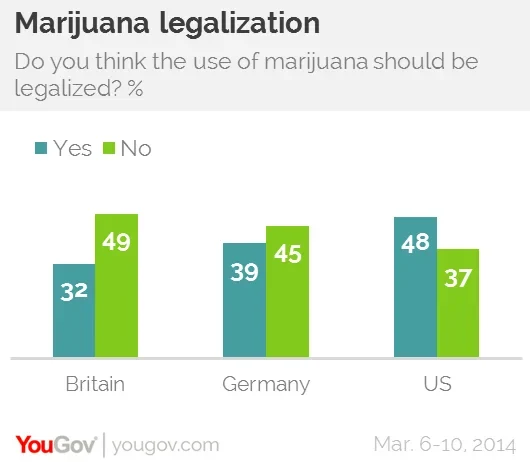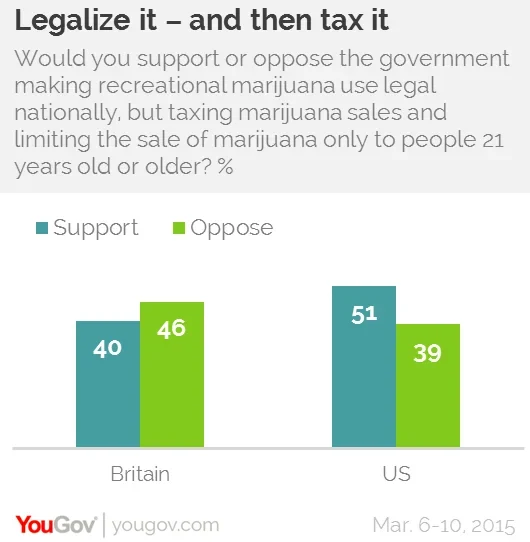A new YouGov survey of adults in Britain, Germany and the U.S. finds that the Americans are the most in favor of marijuana legalization
Three states and Washington D.C. have legalized the sale and possession of marijuana in recent years, while many more have created exemptions for medical cannabis use or decriminalised the drug. In Britain, however, it is illegal for UK residents to possess marijuana “in any form”, and since 2009 it has been classified as a Class B drug, meaning unauthorized possession can be punished with up to five years in prison.
YouGov’s survey founds there is also a wide gap in public opinion between the United States and Britain on this issue.

Roughly half (48%) of US adults now favor making it legal to use cannabis, against just over a third (37%) who oppose it.
In Britain, the figures are inverted, with half (49%) opposed and a third (32%) in favor.
Germans fall somewhere in between, with opponents of legalization outnumbering supporters by six points (45-39%). In Germany, possession is technically illegal, but in certain regions, like Berlin, police don’t usually seek prosecution for possession of small amounts. Permission can also be granted for medical or therapeutic use.
Not all groups in Britain oppose legalization. Adults aged 18-24 favour legalisation by 48 to 32%, while 25-39 year olds are roughly divided, 42 to 39. Similarly, in the United States 50% of under-30s support legalizing marijuana, along with 59% of Democrats.
In addition, presented with a national version of the legalization policy put in place in some parts of the United States – where the recreation use and sale of marijuana is allowed, but taxed and prohibited for people under 21 years of age – support among the British public rises to 40%, with only 46% opposed.

However Britons still lag behind Americans, who would back a nationwide legalize-and-tax policy by 51% to 39%.
In Colorado alone, as much as $53 million has already been raised from the 15% excise tax imposed on marijuana sales. Some of the money will be used to help fund public schools in the state, a requirement of the law that legalized the drug for recreational purposes in 2012.









